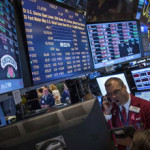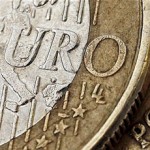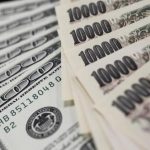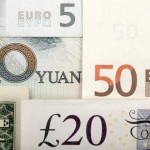Asian Bonds Gain, Kiwi Falls, Yen Slipped
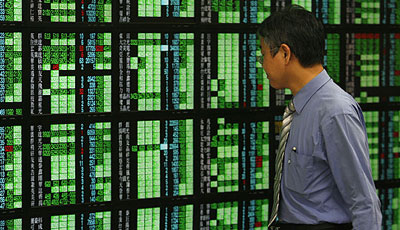
Asian Bonds Gain While China Shares Extend Rally
- Kiwi falls after New Zealand central bank holds rates
- Euro-dollar volatility surges amid French election buildup
Political uncertainty continues to drive financial markets, with Asian bonds following a rally in Treasuries. China shares in Hong Kong headed for a 14-month high, while the New Zealand dollar slid after the central bank signaled discomfort with the currency’s strength and odds of an interest-rate increase were lowered.
Yields on 10-year Australian bonds retreated after those on Treasuries extended declines for a fourth day Wednesday, the longest stretch since the leadup to June’s Brexit vote. Chinese shares traded in Hong Kong jumped for a fourth day as investors sought out bargains in one of the world’s cheapest equity markets. Crude rebounded above $52 a barrel, and the dollar rose against most major currencies. Euro-dollar volatility surged as investors assess political risks in Europe and the U.S.
Trades sparked by Donald Trump’s election continued to fluctuate as long-awaited details on pro-growth policies remain undelivered. The yen, gold and global equities have alternated between gains and losses for the past four days. Even one of the best corporate earnings seasons since the financial crisis hasn’t been able to jolt many equity markets higher. New Zealand’s central bank expressed concern about the international outlook as it left interest rates unchanged. BlackRock Inc.’s chief executive Laurence D. Fink said Wednesday that businesses are in a “slow down” because of uncertainty about whether Congress and the new U.S. administration will enact policies that energized markets after the election.
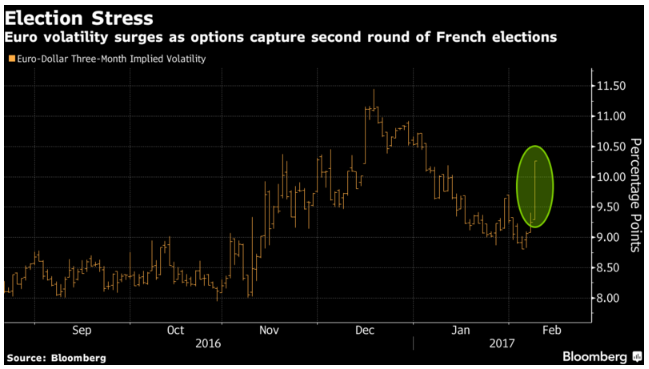
“With the yen acting erratically, it’s difficult for investors to tilt their positions too much in one direction,” said Shunichi Otsuka, general manager of research and strategy at Ichiyoshi Securities Co. in Tokyo.
What’s coming up in the markets:
- A U.S. court of appeals is reviewing arguments on whether to reinstate the Trump administration’s temporary ban on immigration, with the outcome likely to be appealed to the Supreme Court.
- The U.S. Treasury Department is this week selling a total of $62 billion of three-, 10- and 30-year securities in its quarterly refunding.
- Japanese Prime Minister Shinzo Abe travels to Washington on Friday to meet with U.S. President Donald Trump.
Here are the main market moves:
Bonds
- Australian 10-year bonds rose for a fourth day, driving yields down five basis points to 2.64 percent at 2:25 p.m. Tokyo time. Yields in New Zealand were down 10 basis points at 3.16 percent.
- Treasuries were flat, with 10-year yields at 2.35 percent, after reaching a three-week low on Wednesday based on closing levels.
Currencies
- The yen slipped 0.3 percent to 112.23 per dollar after rising 0.4 percent Wednesday. The euro lost 0.2 percent to $1.0682, heading for its steepest weekly decline in two months.
- The kiwi dollar slid 0.9 percent, extending its drop after Reserve Bank of New Zealand Governor Graeme Wheeler said “a decline in the exchange rate is needed.” The Australian dollar lost 0.3 percent.
Stocks
- The Hang Seng China Enterprises Index jumped 1.4 percent. The gauge has soared 4.2 percent over the past four sessions.
- MSCI Asia Pacific Index lost 0.2 percent, after closing Wednesday at the highest level since July 2015. The Topix slid 0.6 percent, with automakers falling the most.
- South Korea’s Kospi Index rose 0.3 percent, while Australia’s S&P/ASX 200 Index erased earlier losses and climbed 0.2 percent. New Zealand’s main benchmark rose 0.8 percent.
- Futures on the S&P 500 were little changed after the index edged up 0.1 percent on Wednesday.
Commodities
- Oil rose 0.5 percent in New York to $52.61 per barrel. Goldman Sachs Group Inc. said a surge in U.S. inventories doesn’t change its forecast that the global market will shift into a deficit in the first-half of this year amid OPEC-led output curbs.
- Copper three-month forwards fell 0.2 percent. The metal jumped 1.7 percent Wednesday after workers at the biggest mine in Chile vowed to strike. Goldman Sachs Group Inc. forecast what would be the first deficit of the metal since 2011.
- Gold was little changed at $1,241.09 an ounce, after touching the highest level since November on Wednesday.
Source: Bloomberg – Asian Bonds Gain While China Shares Extend Rally: Markets Wrap









